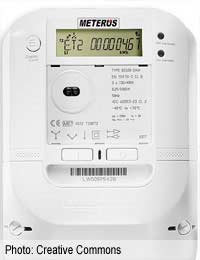How to Use Smart Metering Technology to Cut Costs

With environmental issues high on the agenda of business and Government alike, how enterprises manage their use of energy is now a business imperative. One area that is getting a great deal of research is how energy usage is tracked.
The statistics are staggering. There are 2.7 million businesses in the UK that have their energy meters read manually. All of these could be exchanged for smart meters with a corresponding saving of £6.5 billion a year in energy savings.
For the small business real-world savings if smart meters are introduced can be an average of 12 per cent in saving in carbon emissions. Also a 5 per cent reduction in utility consumption can also be expected.
The Carbon Trust that carried out extensive research into smart metering stated: “Cutting carbon also results in significant financial savings for SMEs. On average, the companies who took part in the trial saved over £1,000 a year on their energy bills.
The largest financial benefits were seen by multi-site businesses, such as retail and wholesale chains, and for high energy users, such as small manufacturing companies. Widespread adoption of advanced metering across the UK SME community would result in annual cost savings of £300 million for small businesses.”
What is a Smart Meter?
In essence a smart meter enables a business to closely track their energy usage. In addition, smart meters allow the energy suppliers to easily read meters and make recommendations about how a business can better use the energy it is consuming.Every business cannot make any changes to its energy consumption if it doesn’t have detailed information. Smart meters are able to give almost minute-by-minute data on energy consumption.
With recent advances in communications technology, the cost of installing smart meters have recently fallen. Previously they were expensive with a long payback timeframe. But with the Government stating that their aim is to reduce carbon emissions by 60 per cent by 2010, smart meters will be crucial to this aim. Consequently the cost of installing smart meters may be partly met by Government agencies.
Smart meter technology is now available for all utilities. Previously only electricity smart meters were viable. Around 2.3 million electricity and 420,000 gas meters are in use at SME premises in the UK. Water meters in the SME sector are estimated at around 1.6 million. All these meters could now be replaced with their smart counterparts.
What Are the Key Savings?
The ways in which smart meters can help businesses save money break down into three basic areas:- [1] Load Reductions
- [2] Process Optimisation
- [3] Peak Usage
This is the main energy usage of a business. Times of the day when the maximum energy consumption is taking place can be identified. Reductions can then be made to increase energy efficiency.
This is a more detailed overview of how energy is being used. A per machine metric can be seen with this measure. Idle machines and their start-up and shutdown times can be varied to increase efficiency and thus save money.
All businesses see peaks in their overall energy usage. A smart meter can show an owner/manager when these peaks are occurring. With this information in-hand, changes can be made as any inefficiencies in energy usage are easily identified from the data that the smart meter produces.
Is the Technology Ready?
An advanced field trial was conducted throughout 2007/8 by the Carbon Trust. This identified the issues that energy suppliers and business alike face if a wholesale move to smart metering is to take place. From the small business point of view cost of installation and understanding the service options are their main concerns. For the energy suppliers a lack of common standards and a lack of incentives for them to install smart meters is holding the implementation back.What is also clear is that simply installing a smart metering system in your business won’t in itself save on energy costs. A new appreciation of how your business consumes energy and a change in attitude to energy conservation are also needed. Smart meters are coming to all UK businesses. Cost savings can be dramatic if the meters are used within a structured energy plan. Ultimately this is good news for all businesses as more data about the energy they are consuming will lead to lower costs and therefore higher profits.







